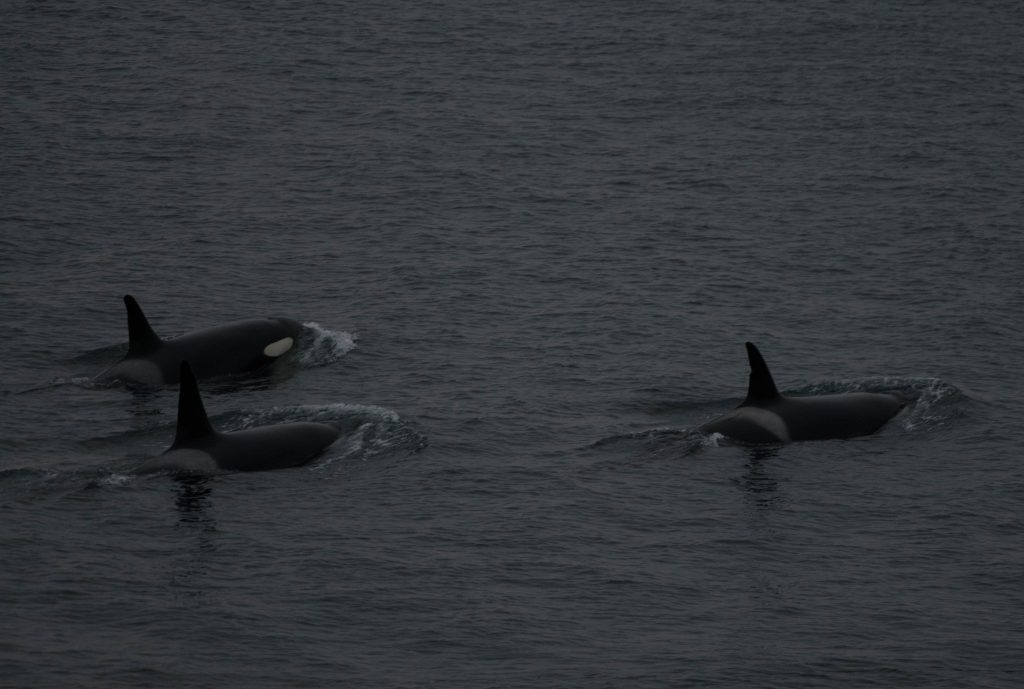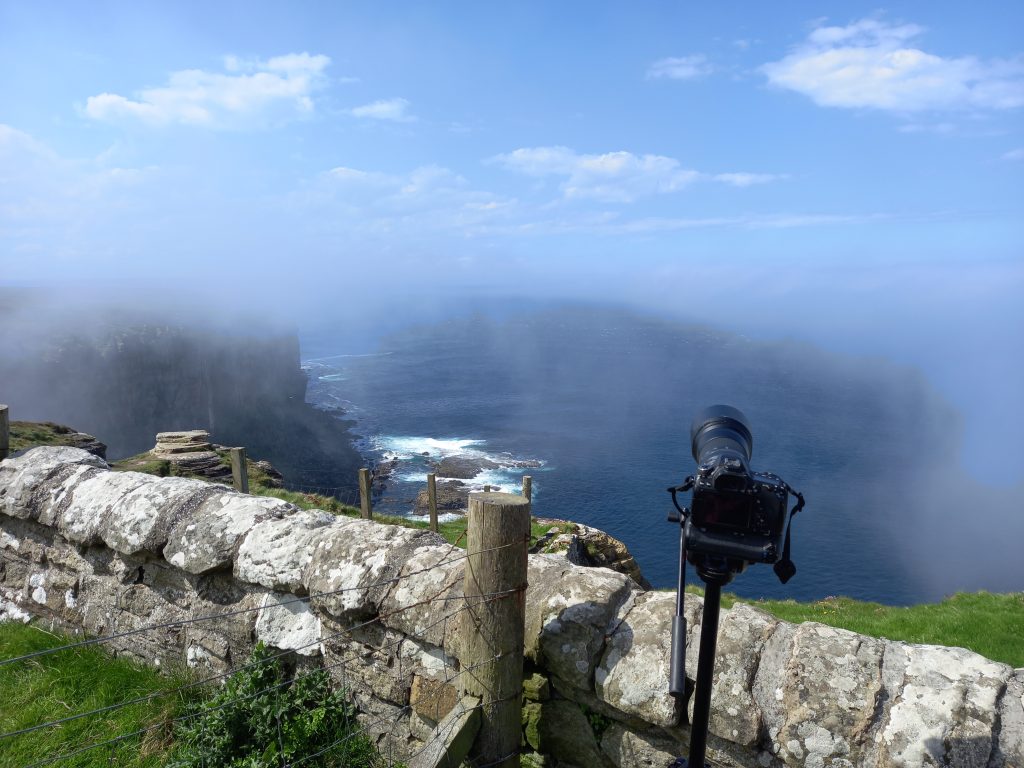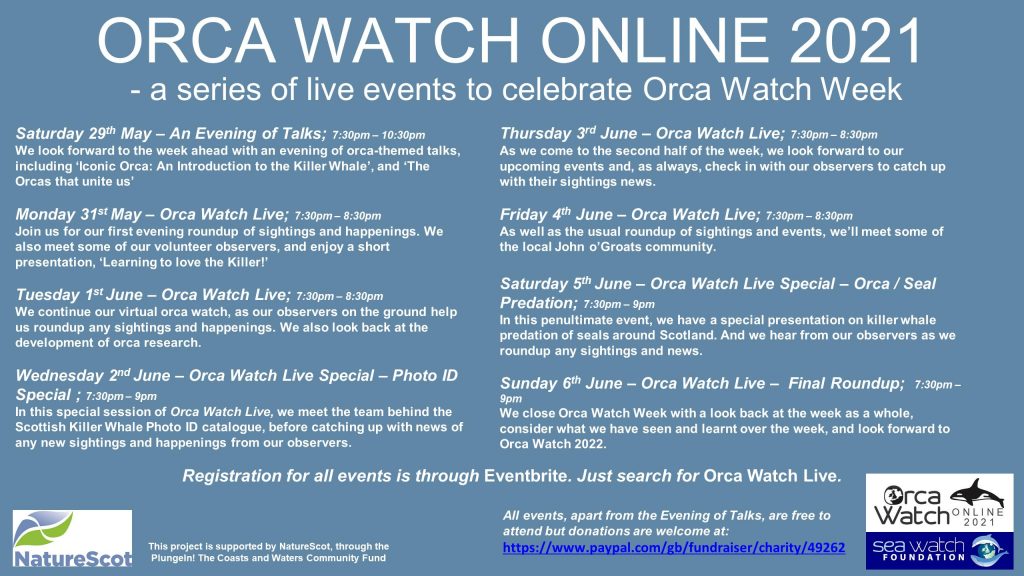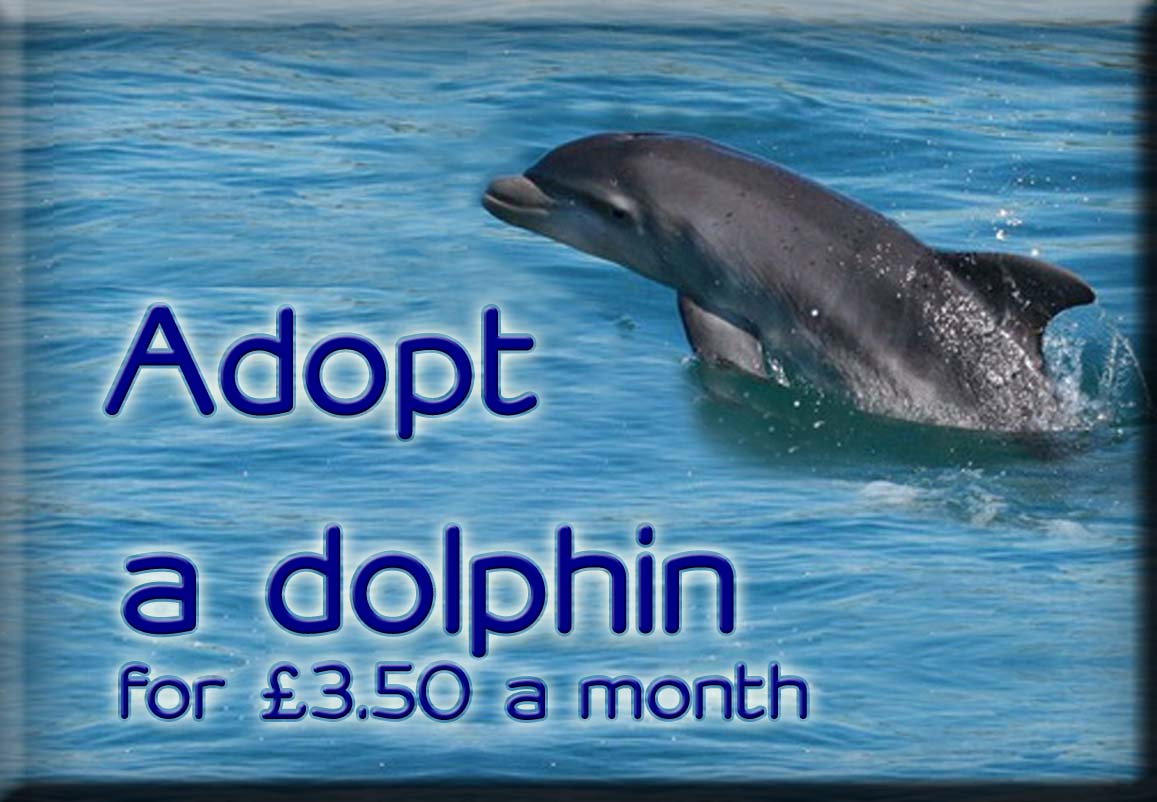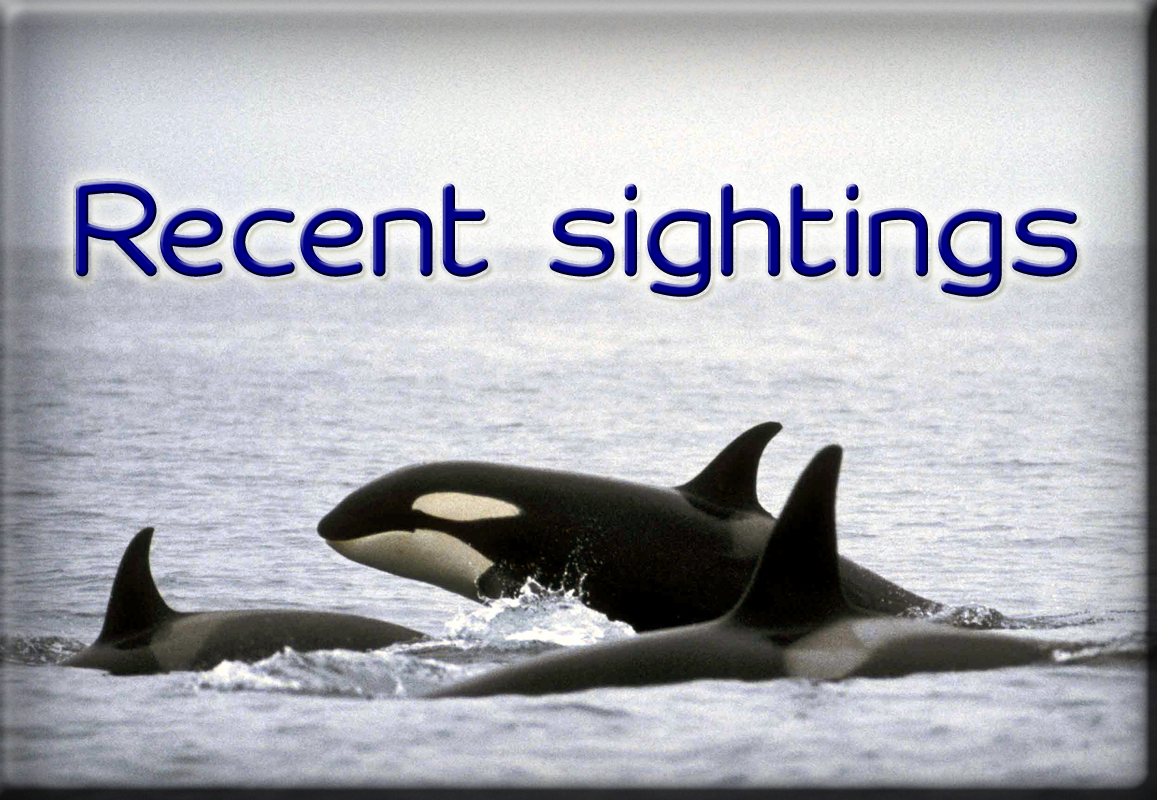Orcas and 5 other species have already been seen during the first four days of Orca Watch 2021 which runs until Sunday 6th June.
This year’s annual Orca Watch event (with a difference) kicked off this week on the 29th May. The event would usually see scores of wildlife watchers, volunteers, and tourists flock to north-east Scotland to assist in the surveying and observation of one of our most charismatic UK marine mammals, the orca, alongside other cetaceans. With COVID-19 still in play, this year Orca Watch moved entirely online, complete with a virtual edition of the event’s ever popular Evening of Talks to begin the event on the 29th, and continuing with daily sightings round-ups throughout the week from a small number of dedicated volunteers on the ground across Caithness, Sutherland, Orkney, and Shetland.
The Sea Watch Foundation and its volunteers have been recording cetaceans in UK waters for over forty years, making it one of the longest-running citizen science projects and marine mammal databases worldwide. Despite being online this year, there have been plenty of sightings from Sea Watch Foundation’s on-the-ground volunteers and locals across Scotland.
The week got off to a flying start in Shetland on the 28th May, with harbour porpoise, minke whale, and Risso’s dolphins all sighted throughout the morning and early evening, alongside the star sighting of three orcas at around midday (possibly identified as the 169’s pod). On the same day, a pod of five orcas were spotted at Staxigoe and Duncansby Head, Caithness, moving north and hunting along the way. Later, another pod of five orca were spotted close inshore at Hoxa Head, Orkney, identified as the 19s pod, a travelling Icelandic group headed by the matriarch Mousa.
The following day, a pod of five orcas later identified as the 169s group were sighted twice in Shetland, at Out Skerries and Grif Skerry, east of Whalsay. Across the rest of Shetland and Orkney, minke whale, Risso’s dolphin, and harbour porpoise were sighted, too. Whilst all the action was happening, Caithness spent the majority of its day in a thick haar, preventing any sightings.
After the haar of the previous day, the counties of Sutherland and Moray were the place to be on the 30th May. Numerous minke whales, bottlenose dolphins, Risso’s dolphins, and harbour porpoise were all sighted. Observers in Burghead and Spey Bay recorded bottlenose dolphins twice during the day, whilst Shetland and Orkney saw lone minkes and porpoises. A surprise sighting from Scapa Bay, Orkney, was a basking shark; sightings of a variety of marine animals are very welcome at Sea Watch Foundation!
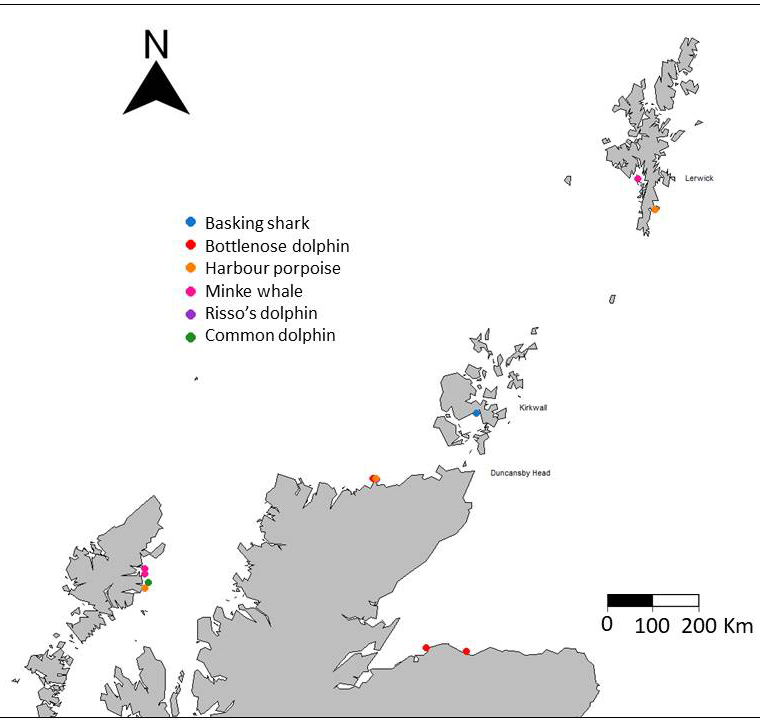
Orca also made a return to Yell and North Roe, Shetland on the 31st May, with numerous sightings throughout the day of the same pod, the 12s, which travel between north Scotland and Iceland. Usually a pod of five, the 6-8 individuals observed suggests the 12s were joined by some travelling companions, along with a newly identified calf!
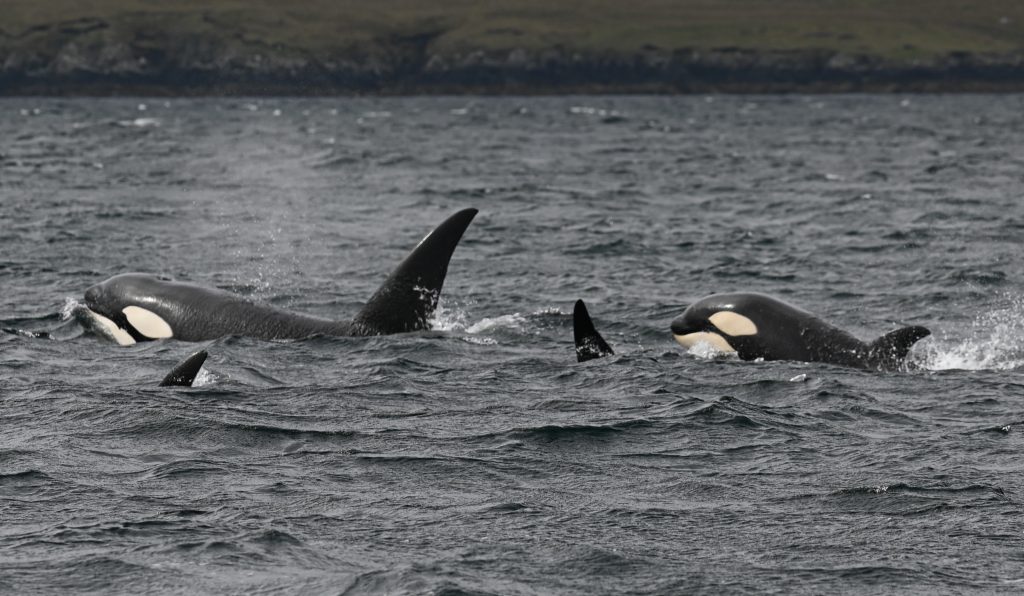
“I was leaving Cullivoe Yell to go a days fishing. When I came out the mouth of the voe I saw 4 fins. The tide was going south I stopped to get some snaps. The orcas was feeding going round in circles then they disappeared so I headed south next thing de started following the boat. So got a few snaps. They carried on going south I headed east” – Ryan Nisbet
With the haar clearing on the mainland, sightings remained quiet aside from three grey seals. Sightings of common and Risso’s dolphins were also recorded around Orkney. However, the 1st June saw the observer’s luck on the mainland start to change, with a lone Risso’s dolphin spotted throughout the afternoon close to the John O’Groats harbour and from the John O’Groats ferry, and a juvenile fin or minke whale spotted from land at Duncansby Head in the evening.
Sea Watch Foundation is also very proud of the great success of the evening of whale talks on May 29th at 7:30 pm on Zoom. On Saturday, the evening included an introduction to Orca Watch and Sea Watch Foundation, information about how to gather and report sightings. The guest speaker for the evening was Filipa Samarra Principal Investigator and Founder of the Icelandic Orca Project, an independent conservation non-profit dedicated to the study of the foraging ecology, social and acoustic behaviour of orcas in Iceland, who provided valuable insight into the movements of orcas between Scotland and Iceland, presenting an overview of how this research started and what they have found over the years.
As the week continues, join us for Orca Watch Live, each evening until the 6th, where you can get daily updates of sightings as they happen. On the 5th June, an Orca Watch Live Special will see a fascinating talk from cetacean scientists on the predation of seals by orca in the UK. The events are free to attend: simply register your interest at Eventbrite by searching for ‘Orca Watch Live’. If you missed the exciting evening of talks that began the event on the 29th, you can access a full recording of the event by purchasing a ticket through Eventbrite.
Whilst Orca Watch 2021 is an online event, sightings recorded around the UK, whether casual or from planned watches (operating within covid social guidelines), are always welcomed and can be submitted here: https://www.seawatchfoundation.org.uk/sightingsform/. They can also be submitted using the free Sea Watcher app, available for both iOS and Android.
- Incoming details of all sightings during this year’s online event can be found here
- Verified sightings can be viewed here

